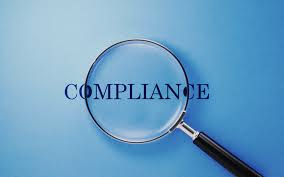DOJ Issues Sweeping New Corporate Criminal Enforcement Policy — A New Era of Compliance Begins with Increased Focus on Compensation and Incentives (Part I of IV)

The Biden Administration promised a new, aggressive approach to corporate crime. Well, the Justice Department just delivered a new, comprehensive policy that raises a number of issues, some of which are likely to be controversial. The new policy incorporates reforms announced last October that largely centered on prior corporate criminal and civil records; appointment of independent compliance monitors and expanding review of responsible persons in an internal investigation.
The Justice Department’s new Corporate Enforcement Policy (“CEP”), however, expands on earlier policy changes but includes some new and far-reaching reforms that are intended to increase individual accountability and promote corporate culture through financial incentives and deterrence policies. This last idea is a significant expansion of DOJ’s CEP and is sure to reverberate through the business and compliance community. Chief compliance officers face a new requirement for their companies — creating an effective system of carrots and sticks to punish misconduct and increase rewards for ethical behavior.
DOJ’s new CEP also lays the groundwork for further consideration of corporate responsibility for preserving electronic messaging, ephemeral services and other electronic data. DOJ’s discussion in this area reflects DOJ’s frustration with corporate internal investigations that omit access to electronic data, especially in those situations where employees use personal devices for business-related communications.

The revised CEP provides guidance to prosecutors and the business community to ensure individual and corporate accountability through the evaluation of various factors, including: (1) Corporate History of Misconduct; (2) Self-Disclosure and Cooperation; (3) the Strength of a Company’s Compliance Program; (4) the Use and Monitoring of Corporate Monitors (including their selection and scope of a monitor’s work).
The Deputy Attorney General Lisa Monaco (“DAG Monaco” or “Monaco Memo”) stated DOJ’s intent is to promote consistency across DOJ. Some of the policies establish new Department-wide policies, such as guidance on evaluating a corporation’s compensation plan, while others supplement and clarify existing policies.
A summary of the key elements of the new CEP is set forth in this posting and in additional postings this week.
The Monaco Memo underscores DOJ’s priority in corporate criminal matters — to hold accountable individuals who commit and profit from corporate crime. Such accountability deters future illegal activity, ensures that proper parties are held responsible for their misdeeds, and promotes public confidence in the justice system.
Timely Disclosures and Prioritization of Individual Investigations: To earn cooperation credit, a corporation must disclose to DOJ all relevant, non-privileged facts about individual misconduct. The Monaco Memo cites the difficulties prosecutors experience from delays in disclosures of important information needed to prosecute responsible individuals. In particular, DOJ noted that such delays can result in expiration of applicable statutes of limitations, dissipation of corroborating evidence and other factors.
As a consequence, to receive cooperation credit, corporations must produce on a timely basis all relevant, non-privileged facts and evidence about individual misconduct such that prosecutors have the opportunity to effectively investigate and prosecute culpable individuals. Corporations that identify relevant information and then delay disclosure to DOJ run the risk that they may not be eligible for cooperation credit. Similarly, corporations should swiftly produce and disclose evidence of relevant facts about individual misconduct.

The Monaco Memo noted that, going forward, DOJ prosecutors must specifically assess whether the company’s cooperation was timely, meaning that the company promptly notified prosecutors of particularly relevant information once it was discovered, or if the company delayed production and disclosure of information that frustrated the government’s investigation. In those cases where prosecutors identify undue or intentional delay, cooperation credit will be reduced or eliminated.
In an interesting new requirement, the Monaco Memo encourages prosecutors to complete their investigation of culpable individuals prior to or simultaneously with the entry of a corporate resolution. If prosecutors are unable to complete the criminal investigation of any individuals, they will be required, at the same time the corporate settlement is reviewed, to explain the status of the investigation an ongoing criminal investigation of any individuals.
The Monaco Memo raises another important issue — foreign prosecution of individuals responsible for cross-border corporate crime. In recognition of the DOJ’s expanding relationships with foreign law enforcement partners, DOJ will consider whether a foreign prosecution is expected to occur and whether delay in a U.S. prosecution may be appropriate.















